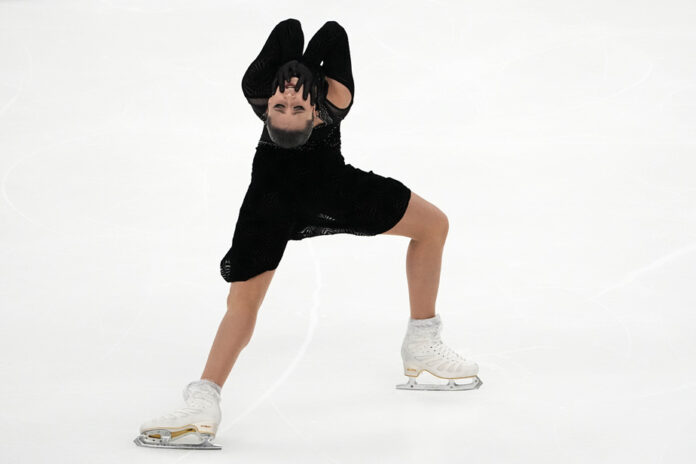(Lausanne) Scandal at the heart of the Beijing 2022 Olympics, the positive doping test of Russian skater Kamila Valieva will be submitted from Tuesday to the Court of Arbitration for Sport (CAS), mixing scientific debate and ethical issues.
Nothing should leak from the hearing, held behind closed doors until the end of the week by the three referee judges meeting in Lausanne, while the young prodigy – now 17 years old – and some of the experts and witnesses will be heard by videoconference.
“At this stage, it is not yet possible to indicate when the sentence will be rendered,” warned the CAS in mid-September. An appeal to the Swiss Federal Court will then be possible within 30 days, but only for limited legal reasons.
Since its revelation in February 2022, the affair has been paradoxical: the age of the skater, 15 at the time, should have guaranteed her total confidentiality, according to the rules of the World Anti-Doping Agency (WADA) for “ protected persons” under 16 years of age.
But the Olympic theater and the exceptional level of Valieva, who had just won the team event with the Russians by achieving the first women’s quadruple jump in the history of the Games, gave it a worldwide impact.
“Confidentiality is wisely provided for, but becomes a little puppet when we are dealing with high-level athletes,” notes to AFP David Pavot, director of the anti-doping research chair at the Canadian University. from Sherbrooke.
For him, the Valieva affair “highlighted broader ethical questions about a minimum age for participating in the Games.” In the absence of IOC rules in this area, everything depends on the international federations: but if the skating federation has raised the threshold for entry into the senior category from 15 to 17 years old from 2024/25 – citing “physical and mental health and emotional” of athletes – the question remains unanswered for other sports including gymnastics.
Furthermore, underlines David Pavot, Kamila Valieva was caught “in a spiral bigger than herself, with an anti-Russian narrative where everything is mixed up”, due to the vast cheating system revealed in 2015 which discredited both Russian sport and its anti-doping authority (RUSADA).
However, it was RUSADA which checked the skater on December 25, 2021, during the Russian championships which she won, before sending her sample to the WADA-accredited Stockholm laboratory.
Delayed by the COVID-19 pandemic, the result fell in the middle of the Olympics: a tiny concentration of trimetazidine, banned by WADA since 2014 because it would promote blood circulation, had been found in the young champion.
More than a year and a half later, the podium in the team event is still up in the air – to the great dismay of the Americans, Japanese and Canadians, beaten by the Russians – and Kamila Valieva ended up cracking under the pressure during the individual event, finished in tears and in fourth place.
But at the beginning of January 2023, the independent RUSADA disciplinary commission revealed that it had not imposed any suspension on the skater, considering that she had committed “no fault or negligence”. She also returned to competition, taking second place at the end of 2022 in the Russian championships.
WADA, the International Skating Federation (ISU) and RUSADA, which disapproves of the decision of its independent disciplinary commission, therefore brought the matter before the CAS, demanding up to four years of suspension and the annulment of all its results since the end of 2021, a debate which promises to turn into a battle of experts.
Because the young sportswoman had cited “contamination via cutlery” shared with her grandfather, treated with trimetazidine after the installation of an artificial heart. For years, doubt has surrounded the real benefit of trimetazidine for sports performance.
“WADA brought this case before the CAS for questions of fairness for athletes and for clean sport,” summarized a spokesperson for the Agency in a statement to AFP. “We consider that the decision of the RUSADA Disciplinary Commission […] violates the terms of the World Anti-Doping Code.”
Sports authorities have already recognized in 2018 two cases of accidental contamination with trimetazidine: that of the American swimmer Madisyn Cox, via a food supplement (reduced suspension), and that of the Russian bobsledder Nadezhda Sergeeva, suspended during the Pyeongchang Olympics and cleared eight months later.















